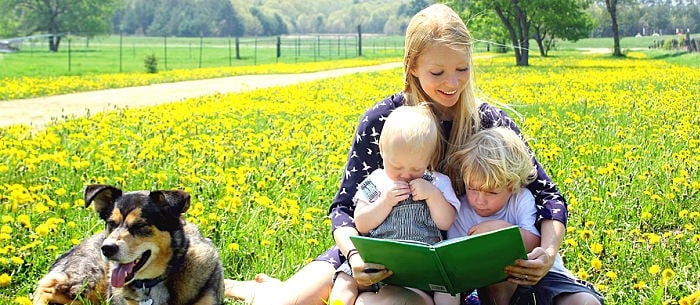Four-year-olds are often a whirlwind of energy and curiosity, learning new words and concepts every day (and asking you questions about each and every one!). But what’s really typical for language development in children this age? And how can you tell if your child is developmentally on track?
You may have already noticed that your child is no longer struggling to find the words to explain what she’s thinking, feeling or wanting to do — she may be making this quite obvious. This freedom of speech is exciting for everyone. In fact, between their fourth and fifth birthdays, most boys and girls will be communicating more clearly and effectively than before, pronouncing most words correctly and using complete sentences. Here’s a look at what to expect.
And read
our guide to developmental milestones for kids
.
Language Milestones
The ability to keep a conversation going is a big step, in terms of both social development and language development in children. According to the American Academy of Pediatrics, most 4-year-olds can create short sentences and should be able to retell a story in basic words. Virginia McGoey-Radshaw, a speech-language pathologist at Connecticut Children’s Medical Center, says to expect sentences that equal the child’s age in length — so, four to five words for a 4-year-old. The American Speech-Language-Hearing Association adds that those sentences should include action words, such as “jump,” “play” and “get.”
At this age, the things your kid says are changing, too. “A typically developing child should use basic past tense correctly by 4 years of age,” says McGoey-Radshaw. There are other skills that you may notice, like how they can now understand words for sequences (first, last and next), can often follow two-step directions (“turn off the iPad, and go brush your teeth”) and may say different things depending on the listener and place.
Despite knowing many words, not everything that y our 4-year-old says will be pronounced correctly. Jennifer L. Maietta, a pediatric speech-language pathologist at MassGeneral Hospital for Children, notes that children between ages 4 and 5 may say sounds like S, Z, SH, CH and J incorrectly by protruding their tongue between their teeth, making a TH sound. They may also pronounce L like W or Y, R like a W, or TH like F or D. Don’t worry if this is the case for your little one — it’s common and should disappear completely by age 6. Still, your child’s speech should be able to be understood by unfamiliar listeners, and she should be able to communicate and play with other children.
How to Encourage Language Development
Does it feel like your preschooler asks you 100 questions a day? While this may sometimes be frustrating, think of each day as having 100 opportunities to help build your child’s communication skills. Show her that you’re listening, give her time to speak without interruption and don’t change topics too quickly.
Reading with your 4-year-old is another great way to foster her language development. “I cannot emphasize enough the important language and learning skills attained through joint book reading,” says Maietta. Your kid will learn valuable skills including comprehension, vocabulary and an understanding of story structure (that stories have a beginning, middle and end). He will develop preliteracy knowledge (reading from left to right), perspective taking (“What do you think she’s feeling?”) and inference and prediction making (“What will happen next?”). “For children who are developing language skills more slowly,” Maietta says, “try books with flaps or touch-and-feel elements.” Books based on familiar songs or rhymes can also be helpful.
For more on milestones, read our
Overview of Milestones for 4 Year Olds
.
In addition to being a writer, editor and web developer, Nancy J Price is the mother of four children, including one with speech delays and autism. A California native, she now lives with her family in Arizona and writes for several sites, including Myria.com.
* This article is for general informational purposes only. It is not intended nor implied to be providing medical advice and is not a substitute for such advice. The reader should always consult a health care provider concerning any medical condition or treatment plan. Neither Care.com nor the author assumes any responsibility or liability with respect to use of any information contained herein.






